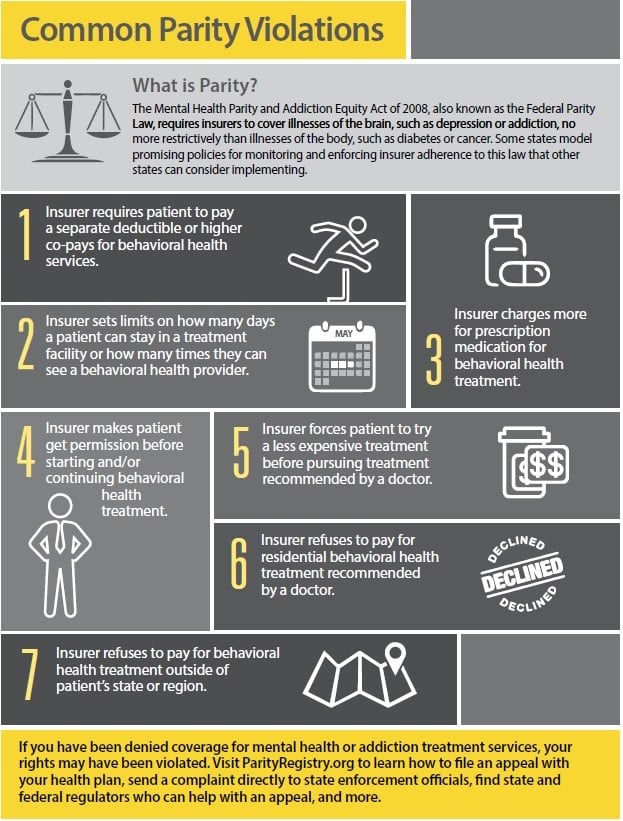 “Without strong parity laws, it's basically a lottery as to what kind of care a person might get,” says one mental-health parity advocate. (Image: Shutterstrock)
“Without strong parity laws, it's basically a lottery as to what kind of care a person might get,” says one mental-health parity advocate. (Image: Shutterstrock)
Thirty-two U.S. states received failing grades for not having adequate laws in place to ensure equal access to mental health and addiction treatment, according to the report, “Evaluating State Mental Health and Addiction Parity Statutes,” issued by nonprofit institutes and advocacy groups on the 10th anniversary of the federal Mental Health Parity and Addiction Equity Act.
Wyoming, Arizona, Idaho and Indiana received the lowest scores, while Illinois, Tennessee, Maine, Alabama, Virginia and New Hampshire scored the highest – though those six states all received a C grade. The state-by-state report cards assess the strength of mental health and substance use disorder parity statutes, as required per the 2008 federal law.
Related: A decade later, still no mental health parity
“Strong state parity laws are the critical foundation for ensuring enforcement and ending discrimination in coverage of mental health and substance use disorder services,” says Benjamin F. Miller, chief strategy officer at Well Being Trust, one of the sponsors of the report cards.
“Without strong parity laws, it's basically a lottery as to what kind of care a person might get — there is seemingly zero accountability and little-to-no transparency,” Miller says. “Patients, providers, and policymakers often cannot know whether a health plan is providing access to mental health services as it should.”

The report cards assessed key elements of state statutes relating to parity and identified three key issues and recommendations for improvement based on frequent deficiencies found in their analysis of state statutes:
– Mental health conditions must be recognized as broadly as “physical” health conditions. As such, states should define mental health conditions to include all disorders in the Diagnostic and Statistical Manual of Mental Disorders or International Classification of Diseases with no exclusions. This will ensure the full gamut of mental health conditions are covered as comprehensively as physical diagnoses, like cancer.
– Co-pays and out-of-pocket costs must be the same for mental health services as they are for physical health services. As such, states should require that benefit management processes and treatment limitations, specifically non-quantitative treatment limitations, are no more restrictive than similar limitations for physical health benefits. Mental health services must also have the same coverage limits as services for the treatment of physical ailments.
– States should strengthen enforcement and compliance activities by empowering regulatory agencies to enforce parity laws, including the federal parity law. In addition, states should require monitoring agencies to regularly report on steps taken to enforce compliance and mandate that all health benefit plans submit regular analyses demonstrating compliance with the law.
The report cards were also sponsored by The Kennedy-Satcher Center for Mental Health Equity in the Satcher Health Leadership Institute at Morehouse School of Medicine, The Kennedy Forum and The Carter Center. At the release of the report cards, Patrick J. Kennedy, a former U.S. Congressman (D-R.I.) who co-sponsored the federal parity law, announced the “Don't Deny Me” consumer action campaign to pressure state elected officials, insurance commissioners and attorneys general to enforce parity laws.
“No parent should ever have to face financial ruin to save their child's life, especially after paying into an insurance plan diligently for years,” Kennedy says.
Read more:
© Touchpoint Markets, All Rights Reserved. Request academic re-use from www.copyright.com. All other uses, submit a request to [email protected]. For more inforrmation visit Asset & Logo Licensing.







